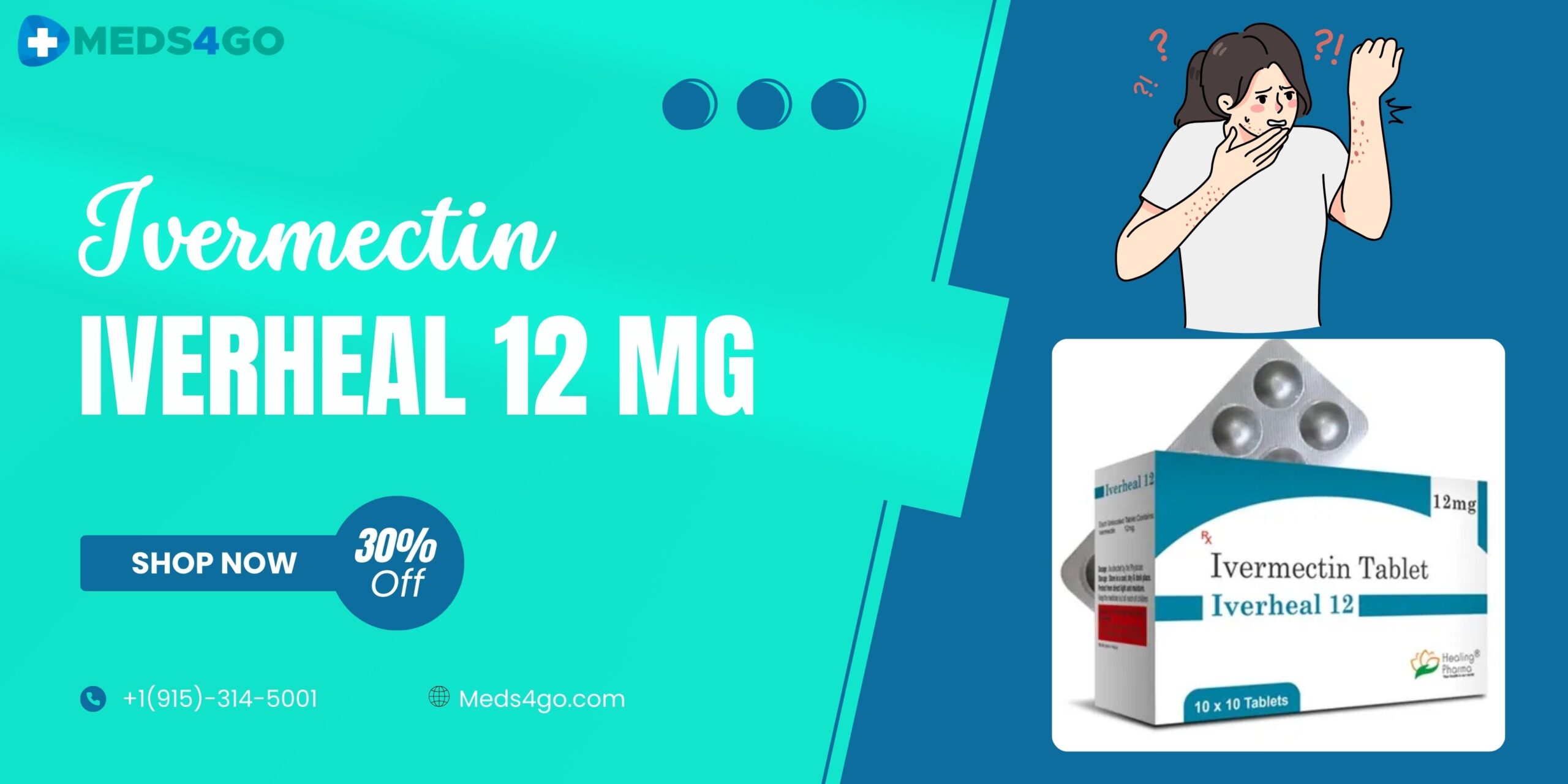
Ivermectin 12 mg: A Doctor’s Perspective on Its Usage
Discover a doctor’s perspective on Ivermectin 12 mg, including its approved uses, how it works, proper usage, safety tips, and common side effects. Learn why medical supervision is essential for safe and effective treatment
Health Apr 28, 2025 8 Add to Reading List

Ivermectin 12 mg has gained significant attention in recent years, not just among healthcare providers but also among the general public. Originally developed in the late 1970s, Ivermectin has been hailed as a groundbreaking medication, especially in the treatment of parasitic infections. As a doctor, it’s essential to shed light on how this medication works, what it’s used for, and the right way to approach its usage for the best outcomes and safety.
What is Ivermectin 12 mg?
Ivermectin 12 mg is an oral medication belonging to the antiparasitic class. It works by paralyzing and killing parasites, thereby treating various infections caused by these organisms. It is highly effective against conditions such as scabies, strongyloidiasis, onchocerciasis (river blindness), and lice infestations. In veterinary medicine, it’s also widely used to treat similar infections in animals.
The 12 mg dosage is often prescribed for moderate to severe infections or when a higher single-dose treatment is preferred for efficiency and quicker recovery.
How Does Ivermectin Work?
Ivermectin 6 mg works by binding to glutamate-gated chloride channels found in the nerve and muscle cells of parasites. This binding causes an increase in the permeability of the cell membrane to chloride ions, leading to paralysis and death of the parasite. Because human cells do not have these glutamate-gated chloride channels, Ivermectin selectively targets the parasites without significantly harming the human host when taken correctly.
Approved Uses of Ivermectin 12 mg
From a medical standpoint, Ivermectin 12 mg is approved for several specific uses:
- Strongyloidiasis (intestinal roundworm infection)
- Onchocerciasis (river blindness)
- Scabies (especially crusted or severe cases)
- Pediculosis (head lice)
- Other parasitic skin conditions
In many of these cases, a single dose is sufficient, but some conditions, such as scabies, may require repeated dosing depending on severity and response to treatment.
Ivermectin 12 mg: Beyond Traditional Use
In recent years, Ivermectin has been discussed as a potential treatment for viral infections, particularly during the COVID-19 pandemic. Some preliminary laboratory studies suggested that Ivermectin could inhibit viral replication. However, as a physician, it is important to highlight that large-scale clinical trials have not consistently supported its effectiveness against viruses like SARS-CoV-2. Major health authorities, including the FDA and WHO, have advised that Ivermectin should only be used for COVID-19 within clinical trials or under the supervision of a healthcare provider.
Self-medicating with Ivermectin for viral illnesses is not recommended and can be dangerous.
Proper Usage Guidelines
When prescribed Ivermectin 12 mg, it’s crucial to follow certain guidelines to ensure safety and effectiveness:
- Take on an empty stomach: Ivermectin is best absorbed when taken with water on an empty stomach (at least 1 hour before or 2 hours after a meal).
- Dosage depends on body weight: The amount prescribed often considers the patient’s weight. This ensures the right therapeutic effect without overdosing.
- Follow your doctor’s instructions carefully: Never self-adjust the dose or frequency. In some cases, a follow-up dose is required after a week or two to ensure complete eradication of the parasites.
Common Side Effects
While Ivermectin is generally well-tolerated, some patients may experience side effects such as:
- Nausea or vomiting
- Dizziness
- Diarrhea
- Muscle aches
- Skin rash or itching
These side effects are typically mild and resolve on their own. However, if severe reactions occur—such as swelling, difficulty breathing, or severe dizziness—immediate medical attention is necessary.
In cases like onchocerciasis, where the body is responding to the death of parasites, more intense side effects (known as the Mazzotti reaction) can occur. Symptoms might include fever, joint pain, and swelling.
Safety Tips for Taking Ivermectin 12 mg
- Consult a Healthcare Professional: Always use Ivermectin under the guidance of a qualified doctor. Misuse can lead to toxicity.
- Avoid Using Veterinary Ivermectin: Animal-grade Ivermectin products are not safe for human use due to differences in formulation and dosing.
- Disclose Your Medical History: Let your doctor know if you have liver disease, asthma, or a weakened immune system.
- Stay Hydrated: Drink plenty of water when taking Ivermectin to support your body’s processing of the medication.
- Report Any Unusual Symptoms: Early reporting of side effects can prevent complications.
My Professional Advice
As a physician, I see Ivermectin 12 mg as a powerful and valuable tool—but one that must be used responsibly. It’s not a miracle cure for everything, nor is it without risks. For its approved uses, when prescribed appropriately, it can dramatically improve health outcomes, clear stubborn infections, and even save lives.
However, taking it without medical supervision or for conditions where it has not been proven effective carries significant dangers. Overdosing on Ivermectin can lead to serious neurological side effects, including confusion, seizures, and coma. That’s why proper diagnosis, correct dosage, and medical follow-up are essential.
To learn more and for safe usage instructions, visit Meds4Go today!
Conclusion
Ivermectin 12 mg remains a cornerstone in the fight against parasitic infections and continues to prove its worth when used correctly. Always trust your healthcare provider to determine if and when you need this medication. Never self-prescribe or misuse it based on internet trends or hearsay.
When used with medical supervision, Ivermectin 12 mg is safe, effective, and a remarkable achievement in modern medicine.







